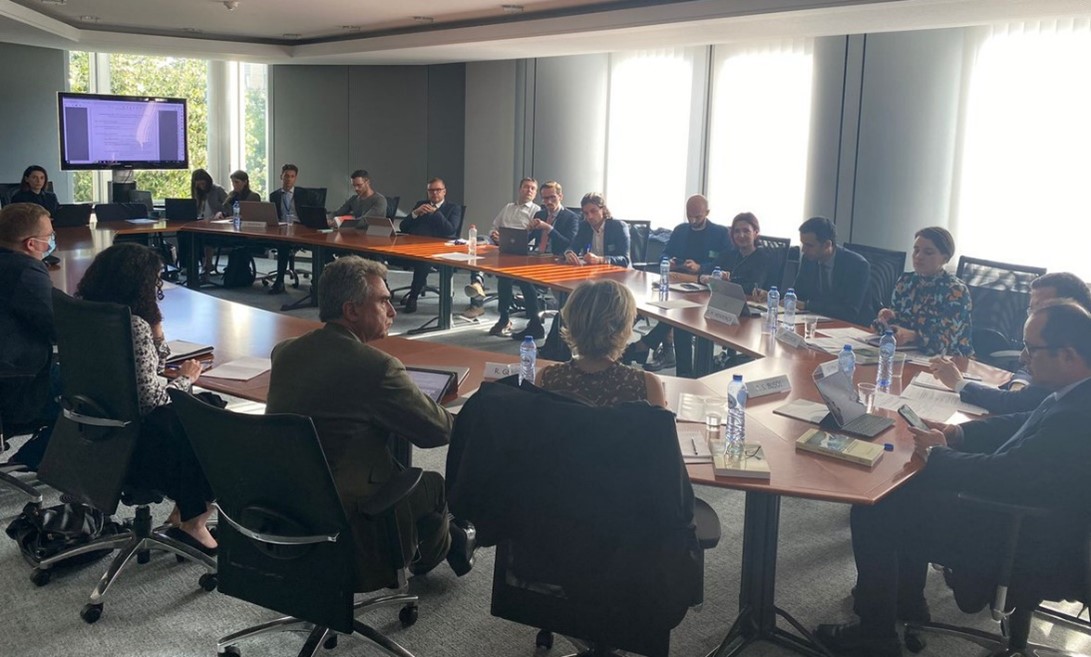Sandro Mendonça, Member of ANACOM’s Board of Directors, participated in the event “Towards a European Digital Identity Wallet: Striking the right balance between regulation and market needs https://www.i-com.it/2022/06/21/policy-roundtable-towards-a-european-digital-identity-wallet-striking-the-right-balance-between-regulation-and-market-needs/#speakers”, hosted by the Institute for Competitiveness (I-Com), which took place on 21 June 2022 at the European Parliament in Brussels (Belgium).
The event aimed to discuss the state of the art of the proposed framework for a European digital identity, presented by the Commission in June 2021, in an attempt to revise the eIDAS (2014) regulation and bring it in line with the current challenges and priorities of the European Union’s technology and innovation policy.
Sandro Mendonça participated in a round table, moderated by Stefano da Empoli (President of I-Com), with the participation of Lorena Boix-Alonso (Director of DG Connect), Karen Melchior (MEP) and Riccardo Genghini (Director at ETSI - European Telecommunications Standards Institute). In his address, Sandro Mendonça outlined five points:
- two related to the practice of the Regulatory Authority itself:
i. independent administrative entities are in a good position, as advanced public service providers, to implement pilot tests using digital identity and authentication schemes;
ii. the emphasis on a smooth and streamlined relationship with users highlights that while the issues of digital identity and authentication have been thought of as having citizenship at their core, the fact that regulators deal with industrial (regulated) stakeholders points to the significant potential for compression of administrative burdens, with high interest in areas such as market access (start-ups, foreign researchers), and which may have critical interdependencies in terms of new means of payment (and with emerging themes such as the “Digital Euro”);
- and three related to the scope of regulatory powers:
i. storage of information assets leads to the assessment of physical infrastructure issues, i.e. server farms and network architecture (solutions such as European Data Gateways) are important for data location, anchoring in enterprises, and for information governance in general;
ii. phenomena such as the commoditisation of identification and authentication, involving the promotion and framework of new intermediaries (“wallet providers”, “providers of attestation”) with critical characteristics at the level of business continuity that may make them comparable to essential public services;
iii. the process of technological evolution has aspects of “creative destruction” that must be monitored and, in this case, the automation of a set of activities that are relevant to the public may increase pressure on the space of services reserved for the traditional European concessionaires of the universal postal service.
This session was attended by several experts in the areas of digitality, cybersecurity, technical standards, public policies, technology diplomacy and strategic consulting. Professionals from the electronic communications sector, computer engineering and the semiconductor industry also participated. Several MEPs, members of the European Council and European Commission officials attended.


Participants at the event




